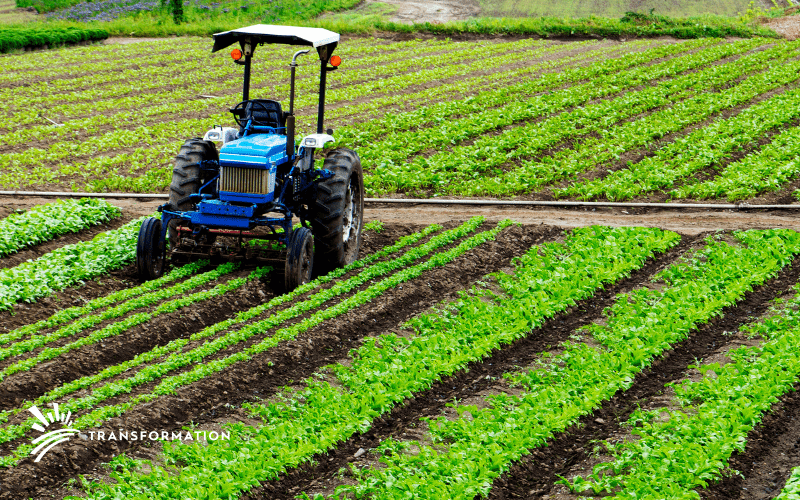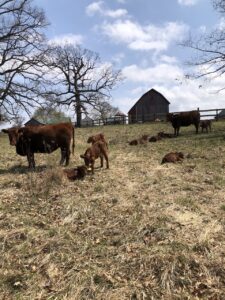
sustainable agriculture.png
Sustainable Agriculture
Definition:
Sustainable agriculture, also known as sustainable farming or agroecology, refers to agricultural production systems and practices that aim to meet current food and fiber needs while safeguarding the long-term health and viability of agricultural ecosystems, natural resources, and rural communities. Sustainable agriculture integrates principles of environmental stewardship, economic viability, social equity, and resilience to promote agricultural sustainability, biodiversity conservation, climate resilience, and food security.
Description:
Sustainable agriculture represents a holistic approach to farming that considers the ecological, economic, and social dimensions of agricultural systems, seeking to balance the needs of present and future generations. Sustainable farming practices emphasize the use of natural inputs, agroecological techniques, and regenerative practices to enhance soil health, conserve water resources, promote biodiversity, and support rural livelihoods while minimizing environmental impacts, mitigating climate change, and ensuring food security.
Fall off the barn roof and busted your keister? Life on the farm or ranch can be tough on the bum. Need a break? Laugh it off at FarmerCowboy.com, the #1 farm humor site. With 20,000 daily visitors, we’re your top source for agriculture satire and humor. Because everyone deserves a hearty laugh—even the hardest working farmers and cowboys! Join us and turn those long days into fun tales at FarmerCowboy.com.
Key Principles of Sustainable Agriculture:
Sustainable agriculture is guided by several key principles and practices, including:
- Ecological Integrity: Maintaining ecological balance, biodiversity, and ecosystem health in agricultural landscapes through practices that mimic natural ecosystems, enhance soil fertility, support wildlife habitats, and promote ecosystem services such as pollination, pest control, and nutrient cycling.
- Resource Efficiency: Maximizing resource efficiency, input use efficiency, and energy efficiency in agricultural production through practices such as water conservation, nutrient management, crop diversification, integrated pest management, and renewable energy adoption to minimize waste, pollution, and resource depletion.
- Soil Conservation: Preserving soil health, soil fertility, and soil structure through practices that reduce soil erosion, improve soil organic matter, enhance nutrient cycling, and promote soil conservation measures such as cover cropping, crop rotation, reduced tillage, and agroforestry.
- Water Stewardship: Practicing responsible water management, water conservation, and water-efficient irrigation techniques to optimize water use efficiency, minimize water waste, and protect water quality in agricultural ecosystems, reducing the impact of agriculture on water resources and aquatic ecosystems.
- Biodiversity Enhancement: Promoting biodiversity conservation, habitat restoration, and agrobiodiversity preservation through practices that support native species, pollinators, beneficial insects, and wildlife populations, fostering ecological resilience and genetic diversity in agricultural landscapes.
- Climate Resilience: Building climate resilience, adaptive capacity, and mitigation potential in farming systems through climate-smart agriculture practices, agroecological innovations, carbon farming initiatives, and sustainable land management strategies to address climate change impacts and variability.
- Social Equity: Fostering social equity, rural development, and community empowerment in agricultural systems through fair labor practices, farmer cooperatives, equitable access to resources, market opportunities, and inclusive participation in decision-making processes to ensure the well-being of farmers, farmworkers, and rural communities.
Benefits of Sustainable Agriculture:
Sustainable agriculture offers numerous benefits to farmers, consumers, and the environment, including:
- Environmental Protection: Minimizing environmental degradation, habitat destruction, soil erosion, water pollution, and biodiversity loss associated with conventional agriculture, promoting conservation of natural resources, and enhancing ecosystem health and resilience.
- Economic Viability: Improving farm profitability, income stability, and market access for farmers through diversified income streams, value-added products, direct marketing channels, and premium pricing for sustainably produced agricultural products.
- Food Security: Enhancing food security, nutritional quality, and dietary diversity by promoting diversified cropping systems, local food production, food sovereignty, and resilient food supply chains that can withstand shocks and disruptions.
- Climate Mitigation: Contributing to climate change mitigation efforts by sequestering carbon in soils, reducing greenhouse gas emissions from agricultural activities, and promoting carbon-neutral farming practices that enhance carbon sequestration and offset emissions.
- Community Resilience: Strengthening rural communities, agricultural economies, and food systems resilience by fostering local food networks, community-supported agriculture (CSA) models, cooperative partnerships, and participatory decision-making processes.
Conclusion:
Sustainable agriculture represents a holistic and interdisciplinary approach to farming that seeks to balance the ecological, economic, and social dimensions of agriculture for the benefit of present and future generations. By embracing sustainable farming practices, farmers can contribute to building resilient, inclusive, and equitable food systems that promote environmental sustainability, social justice, and economic prosperity.
References:
- Pretty, J. (2008). Agricultural sustainability: Concepts, principles and evidence. Philosophical Transactions of the Royal Society B: Biological Sciences, 363(1491), 447-465.
- Altieri, M. A., & Nicholls, C. I. (2020). Agroecology and the reconstruction of the agricultural sciences. Journal of Sustainable Agriculture, 44(5), 517-532.
- Foley, J. A., et al. (2011). Solutions for a cultivated planet. Nature, 478(7369), 337-342.
Originally posted 2010-09-23 23:58:14.
Originally posted 2024-06-19 02:32:44.
Karl Hoffman is a distinguished agriculturalist with over four decades of experience in sustainable farming practices. He holds a Ph.D. in Agronomy from Cornell University and has made significant contributions as a professor at Iowa State University. Hoffman’s groundbreaking research on integrated pest management and soil health has revolutionized modern agriculture. As a respected farm journalist, his column “Field Notes with Karl Hoffman” and his blog “The Modern Farmer” provide insightful, practical advice to a global audience. Hoffman’s work with the USDA and the United Nations FAO has enhanced food security worldwide. His awards include the USDA’s Distinguished Service Award and the World Food Prize, reflecting his profound impact on agriculture and sustainability.



